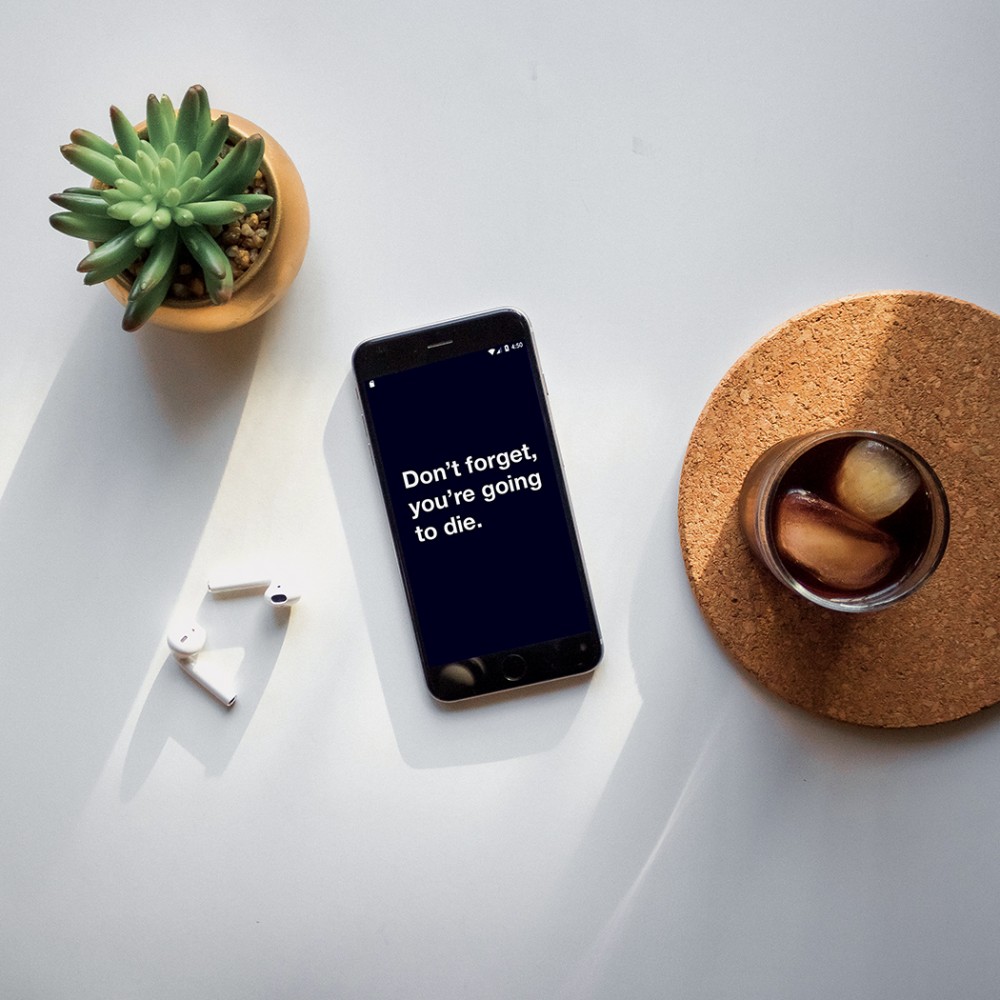5 times a day, the WeCroak app reminds me that I’m going to die
I liked this, until I didn’t.

It feels ridiculous to say that a smartphone app changed my life. I’m not that shallow. But it happened. A smartphone app changed my life. I’m not certain my life is better, but I know I’ll never be the same.
The app is called WeCroak. Five times a day, WeCroak sends an alert to its users. They arrive at random moments but always say the same thing: Don’t forget, you’re going to die.
WeCroak is based on a Bhutanese aphorism: “To find happiness, contemplate death five times a day.” You might expect the app’s inventor to have a touch of the executioner about him, but Hansa Bergwall is charming. He works in public relations and practices Sikh meditation. When he learned that some Buddhists meditate on death, he resolved to do so himself.




